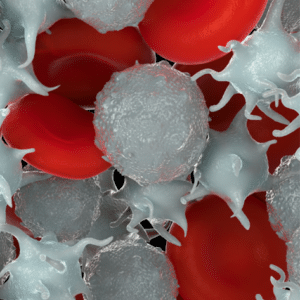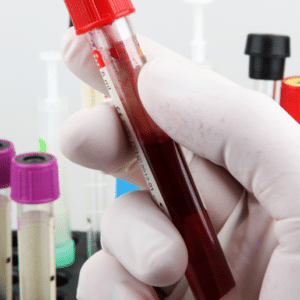Scientists are always looking for new ways to use our immune system to fight diseases. One method is called cell therapy, where instead of drugs, we use cells themselves to combat illnesses like cancer. At the forefront of this field is the leukapheresis procedure, which collects white blood cells from patients with high white blood cell counts.
This article explores leukapheresis, how it helps develop cell-based therapies, and its potential to change the way we treat blood cancers.
The Leukapheresis Procedure in Research and Cell Therapy
Leukapheresis therapy involves taking blood from a donor and removing the white blood cells.

The white blood cells are then separated from the other parts of the blood, like red blood cells and plasma, and reintroduced to the donor.
White blood cells, like T cells, monocytes, B cells, and natural killer cells, are incredibly important for our immune system.
Leukopaks, which are packs of these white blood cells, are super helpful in science. They help scientists study these cells more closely and develop new treatments for different diseases, like cancer, autoimmune disorders, infections, and blood cancers.
Exploring the Therapeutic Landscape
Cell-based treatments use leukapheresis to get a bunch of pure white blood cells, which helps make personalized treatments. These treatments can boost the immune system against threats or ease the effects of autoimmune disorders.
For example, in CAR T-cell therapy, scientists tweak extracted T cells to target cancer cells. When these modified cells are put back into the patient, they attack cancer cells specifically.
Similarly, ACT therapies use leukopaks to find and grow special cells that can fight cancer cells directly.
These treatments can change cancer care, especially in cases where conventional treatments don’t work well.
Also, these treatments show promise for autoimmune disorders, where the body’s immune system harms tissues and organs. Giving patients special cells like regulatory T cells or mesenchymal stem cells could help with conditions like multiple sclerosis, rheumatoid arthritis, and lupus.
Leukopaks: The Powerhouse Behind Drug Research
Leukopaks are like treasure chests for scientists, especially in drug research. They help researchers understand and develop treatments for diseases, especially those related to the immune system. Here’s how leukopaks are making a big impact:

- Studying Different Immune Cells: Leukopaks let scientists study specific types of white blood cells (WBCs), like T cells, B cells, and others. This helps us understand how these cells work in our bodies and how they might be involved in diseases.
- Creating Cell Therapies: With leukopaks, scientists can make treatments using our own cells. For example, T cells from leukopaks can be taken out, grown, and sometimes changed in a lab. Then they’re put back into patients to help fight diseases like cancer.
- Finding Drug Markers: Researchers use leukopaks to find markers that show how well a drug works or if it might cause side effects. This helps in making better drugs and predicting how they’ll affect the body.
- Developing Immune System Drugs: Leukopaks help in making drugs that either boost or calm down our immune systems. Scientists test these drugs on different immune cells to see which ones work best.
- Exploring Immune System: By studying immune cells from leukopaks, scientists learn more about how our immune systems work in different situations. This helps in making better treatments for diseases like cancer, vaccines, and autoimmune disorders.
- Testing Cancer Treatments: Leukopaks, especially those rich in T cells, are super important in making new treatments for cancer. After modifying these T cells in a lab, scientists use them to develop new ways to fight cancer cells.
- Improving Vaccines: Leukopaks help in making better vaccines by studying how our immune system responds to them. This helps in making vaccines that give stronger and longer-lasting protection.
- Fighting Infectious Diseases: Scientists use leukopaks to test how well drugs work against infections. They expose immune cells from leukopaks to germs to see if the drugs help fight them off.
- Understanding Drug Effects: Leukopaks help in figuring out how drugs affect our immune systems. This helps in making sure drugs are safe and effective for treating diseases.
- Personalized Medicine: Every person’s immune system is different, and leukopaks help scientists understand these differences. This helps in making treatments that are tailored to each person’s unique immune system.
Navigating the Future of Leukapheresis
Looking ahead, leukapheresis, the process of collecting these cells, is set for even more advancements. New technology will make the process smoother and faster, making it easier for patients.
And with smart computers helping out, we can better choose donors and predict how well treatments will work. Collaboration between researchers, companies, and regulators is key to keep pushing leukapheresis forward, making sure new discoveries benefit patients everywhere.
In the end, leukapheresis is a shining example of how science keeps moving forward. From understanding how our immune system works to creating life-changing treatments, it’s making a difference in medicine.
With more investment and teamwork, the future looks bright for using leukapheresis to unlock the full potential of our immune system in treating diseases.
Leukapheresis at QPS

Leukopaks are the superheroes of medical research, helping scientists unlock the secrets of our immune system and develop new treatments for various diseases. They’re not just valuable in labs; they’re also crucial in bringing these discoveries from the lab to real-life treatments for better healthcare.
This is a certified gamechanger in drug research, paving the way for more effective treatments for all kinds of illnesses.
At QPS, we’re thrilled to offer Leukapheresis services as part of our commitment to advancing medical research and therapeutic innovation. If you’re interested in learning more about how Leukapheresis can support your research or have any questions about our services, feel free to reach out to us. Our team of experts is here to provide guidance and assistance every step of the way. Additionally, don’t forget to inquire about upcoming clinical trials where Leukapheresis may play a crucial role. Contact us today.
